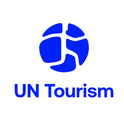Women take Centre Stage Building Inclusive Tourism in Asia & the Pacific
Women-led tourism initiatives are driving sustainability efforts forward across Asia and the Pacific region but more financial investment, training and equal opportunities are still needed to reach gender equality.
The 2nd Regional Conference on the Empowerment of Women in Tourism in Asia & the Pacific provided a platform for some of the most successful women in tourism from the region to spotlight their initiatives, identify challenges and develop strategies for inclusive growth and sustainable development. This is in line with the drive to achieve Sustainable Development Goal 5 on gender equality and the empowerment of women.
UN Tourism and the Ministry of Tourism and Creative Economy of Indonesia co-hosted the event. Over 500 participants from 25 countries gathered to share best practices, forge new partnerships and discuss measures to promote gender equality in the tourism sector. Tourism’s contribution to the 2030 Sustainable Development Agenda was central to discussions of the Ministerial Roundtable and the three panels which covered some of the key areas for women's empowerment in tourism, including entrepreneurship, leadership, education, accessibility and workforce participation.
‘Centre Stage’ project expanded to Asia and Pacific
One of the highlights of the conference was the announcement that UN Tourism’s flagship ‘Centre Stage’ capacity-building programme for gender equality is now open to all its Asia and Pacific Member States. The programme provides targeted support to governments and tourism businesses, creating more opportunities for women’s empowerment and their professional development.
Among the set of key recommendations that emerged from discussions are supporting women-owned businesses, introducing gender-responsive budgeting, more training opportunities and promoting women's leadership in decision-making roles.
Speaking about the conference, Harry Hwang, Regional Director for Asia and the Pacific of UN Tourism, said the inspirational women gathered in Bali are role models for an inclusive and sustainable future for tourism. Today is an important milestone on the road to gender equality but as we have seen, we have a lot more work to do.
Angela Tanoesoedibjo, Vice Minister of Tourism and Creative Economy/Deputy Head of Tourism and Creative Economy Agency of Indonesia stated that Indonesian women participate in and contribute significantly to the tourism sector. In Indonesia, data shows that 54.22% of tourism workers are women, similar to the global trend.
Sandiaga Uno, Minister of Tourism and the Creative Economy of Indonesia, added as we’ve seen, women are the motor of the Indonesian tourism sector. We are committed to providing more empowerment opportunities, breaking down barriers and making sure women are centre stage of our future development.
Related Links:
- 2nd Regional Conference on the Empowerment of Women in Tourism in Asia & the Pacific
- Centre Stage Programme
- UN Tourism and women’s empowerment
- Gender Mainstreaming Guidelines for the Public Sector in Tourism
- Gender Inclusive Strategy for Tourism Businesses
- ‘Gender Equality in Tourism Training’ 1-hour online course
About UN Tourism
The World Tourism Organization (UN Tourism) is the United Nations agency responsible for the promotion of responsible, sustainable and universally accessible tourism.
As the leading international organization in the field of tourism, UN Tourism promotes tourism as a driver of economic growth, inclusive development and environmental sustainability and offers leadership and support to the sector in advancing knowledge and tourism policies worldwide.
Our Priorities
Mainstreaming tourism in the global agenda: Advocating the value of tourism as a driver of socio-economic growth and development, its inclusion as a priority in national and international policies and the need to create a level playing field for the sector to develop and prosper.
Promoting sustainable tourism development: Supporting sustainable tourism policies and practices: policies which make optimal use of environmental resources, respect the socio-cultural authenticity of host communities and provide socio-economic benefits for all.
Fostering knowledge, education and capacity building: Supporting countries to assess and address their needs in education and training, as well as providing networks for knowledge creation and exchange.
Improving tourism competitiveness: Improving UN Tourism Members' competitiveness through knowledge creation and exchange, human resources development and the promotion of excellence in areas such as policy planning, statistics and market trends, sustainable tourism development, marketing and promotion, product development and risk and crisis management.
Advancing tourism's contribution to poverty reduction and development: Maximizing the contribution of tourism to poverty reduction and achieving the SDGs by making tourism work as a tool for development and promoting the inclusion of tourism in the development agenda.
Building partnerships: Engaging with the private sector, regional and local tourism organizations, academia and research institutions, civil society and the UN system to build a more sustainable, responsible and competitive tourism sector.
Our Structure
Members: An intergovernmental organization, UN Tourism has 160 Member States, 6 Associate Members, 2 Observers and over 500 Affiliate Members.
Organs: The General Assembly is the supreme organ of the Organization. The Executive Council take all measures, in consultation with the Secretary-General, for the implementation of the decisions and recommendations of the General Assembly and reports to the Assembly.
Secretariat: UN Tourism headquarters are based in Madrid, Spain. The Secretariat is led by the Secretary-General and organized into departments covering issues such as sustainability, education, tourism trends and marketing, sustainable development, statistics and the Tourism Satellite Account (TSA), destination management, ethics and risk and crisis management. The Technical Cooperation and Silk Road Department carries out development projects in over 100 countries worldwide, while the Regional Departments for Africa, the Americas, Asia and the Pacific, Europe and the Middle East serve as the link between UN Tourism and its 160 Member States. The Affiliate Members Department represents UN Tourism's 500 plus Affiliate members.
UN Tourism Communications Department
+34 91 567 8100
UN Tourism
